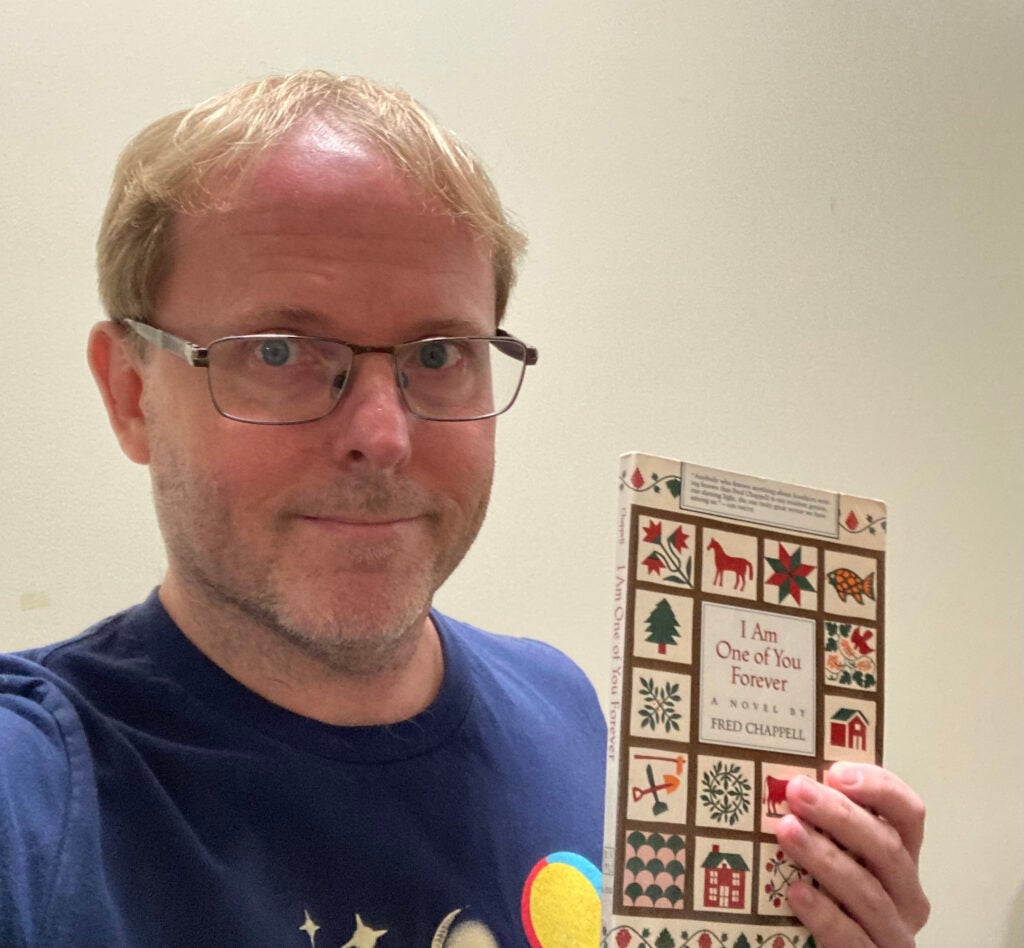by Randall Martoccia, Assistant Editor

I assigned Fred Chappell‘s I Am One of You Forever in a college-level Introduction to Literature course. We discussed the book over the course of three or four class periods. Students seemed to be most interested in discussing the weird uncles and the other supernatural elements: Uncle Gurton’s immense beard, Jess’s mother’s enlarging tear, the voices in the storm, and of course the mercurial Telegram.
Readers typically consider three ways of thinking about the supernatural when it appears in fiction: 1) It’s a manifestation of a character’s psychological state, 2) It’s a symbol, as in an allegory, or 3) The world of the story is one in which supernatural things happen. These are not rigid categories. The Satanic gathering in Nathaniel Hawthorne’s “Young Goodman Brown,” for instance, could be a hallucination, an allegory, and a feature of that world.
Some readers associate the fantastic with worlds like Middle Earth, Narnia, and Wonderland and don’t expect to see it in an otherwise realistic milieu. Gabriel García Márquez, the author most associated with magical realism, wrote, “My most important problem was destroying the lines of demarcation that separate what seems real from what seems fantastic.”
Chappell similarly blurs those lines between the fantastic and the real. Characters accept the supernatural. Uncle’s Gurton’s beard that becomes a flood is as real to the characters as the tedious farm work.
The book is full of characters who tell stories, some of which are considered implausible. Clearly, the characters do not think of themselves as being in a wholly fantastic world. The characters tend to only accept those things they experience firsthand. Also, the weird uncles resemble characters in folk lore or tall tales. Unlike a mountain Jack tale, however, the supernatural characters are secondary and their stays in Jess’s home (and so in the book) is fleeting. The mostly realistic farm goes back to normal (i.e. non-magical) when they are gone.
Much of the humor of I Am One of You Forever comes from the rusties, or practical jokes, the characters play on each other. Two of them involve fooling a character into thinking something supernatural is happening, which is especially interesting in this magical-realist world: when Jess’s father fools Canary into thinking that God is talking through him and when Johnson Gibbs fools Jess into thinking Satan the horse is talking. The latter prank, which is in the chapter “Satan Says,” seems to arise from the characters’ desire to fill a kind of supernatural void.
Discussion questions:
- What recurring elements appear in the supernatural moments?
- Can they be read as symbolic or indicative of a character’s mental state?
- Do they undermine the suspension of disbelief? And, if so, do they weaken the emotional force of the central tragedy of Johnson Gibb’s death?
- Are the supernatural parts an extension of the rusties and the storytelling?